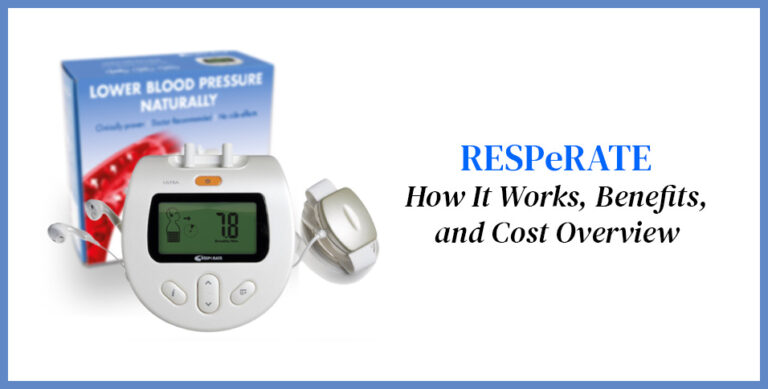Bariatric surgery, including procedures like gastric bypass and sleeve gastrectomy, can be life-changing for people struggling with obesity. These surgeries help patients lose significant weight by reducing the size of the stomach and altering the digestive process.
However, the dramatic changes to the digestive system also impact the body’s ability to absorb essential nutrients. This is why proper nutrition, including taking the right bariatric vitamins, is critical for long-term success after weight loss surgery.
As someone who has undergone bariatric surgery myself, I know firsthand how overwhelming it can be to navigate the lifestyle changes required for optimal health post-surgery. One of the most important things I’ve learned is the vital role that vitamins and supplements play in preventing nutritional deficiencies.
In this article, I’ll share some key information about bariatric vitamins and how they support the unique nutritional needs of weight loss surgery patients.
Why Bariatric Patients Need Specialized Vitamins
After bariatric surgery, the stomach is much smaller and the intestines are rerouted, which impacts nutrient absorption. The body is no longer able to extract vitamins and minerals from food as effectively as before. This puts patients at risk for deficiencies in key nutrients like vitamin B12, iron, calcium, and vitamin D.
Additionally, bariatric patients need to limit their calorie intake to maintain weight loss. This restricted diet makes it even more challenging to consume enough nutrient-rich foods. Without proper supplementation, serious health issues can develop, such as anemia, osteoporosis, and neurological problems.
That’s where bariatric vitamins come in. These specialized supplements are formulated to meet the unique nutritional needs of weight loss surgery patients. They contain higher levels of the vitamins and minerals that are most commonly deficient after bariatric procedures.
Chewable and Liquid Vitamins Are Best After Surgery
In the initial months after bariatric surgery, the stomach is healing and may be sensitive to pills. During this time, chewable or liquid vitamins are recommended for better tolerance and absorption.
Personally, I found chewable vitamins for bariatric patients to be the most convenient and palatable option in the early days post-op. Chewables are easy on the stomach and come in appealing flavors that make taking your vitamins feel like less of a chore. Just be sure to choose a complete chewable multivitamin specifically designed for bariatric patients.
Look for a Highly-Absorbable Multivitamin
When comparing bariatric vitamin options, bioavailability is key. This refers to how well the body absorbs and utilizes the nutrients. Bariatric-specific brands typically contain the forms of vitamins and minerals that are best absorbed, such as:
- Vitamin B12 as methylcobalamin
- Folate as L-5-methyltetrahydrofolate
- Minerals in chelated form
Avoid gummy vitamins, as they do not contain all the essential nutrients bariatric patients require. Instead, opt for a complete chewable or capsule multivitamin that meets established guidelines, such as those from the American Society for Metabolic and Bariatric Surgery (ASMBS).
Additional Supplements You May Need
In addition to a daily bariatric multivitamin, your doctor may recommend extra supplementation for certain nutrients like:
Calcium Citrate
Calcium is essential for maintaining bone health, which is especially important after bariatric surgery. The ASMBS recommends 1200-1500 mg of calcium citrate daily, divided into 500-600 mg doses. Many bariatric-specific calcium supplements also contain vitamin D to aid absorption.
Vitamin B12
Vitamin B12 deficiency is very common after weight loss surgery, as intrinsic factor production is reduced. The ASMBS suggests sublingual, oral, or intramuscular B12 to maintain healthy levels. Dosage is typically 350-500 mcg daily.
Iron
Supplemental iron may be necessary, especially for menstruating women, to prevent anemia. However, men and postmenopausal women should choose a multivitamin without iron unless a deficiency is confirmed, as iron overload can be harmful. Your bariatric doctor will monitor your labs and advise you on the appropriate iron dosage.
Making Bariatric Vitamins a Lifelong Habit
After investing so much into having bariatric surgery, it’s crucial to protect your health and long-term weight loss by staying consistent with your vitamins. At first, it may feel overwhelming to keep track of your supplements.
Setting reminders on your phone, using a pill organizer, and keeping your vitamins in a visible location can help you form the habit.
It’s also important to have regular follow-ups with your bariatric team to monitor your nutrient levels. This allows your doctor to adjust your supplementation regimen if needed and catch any deficiencies early.
Over time, taking your vitamins will become second nature, just like brushing your teeth. And you’ll have the peace of mind knowing you’re nourishing your body and setting yourself up for long-term post-op success.
The Bottom Line on Bariatric Vitamins
Proper nutrition is a non-negotiable part of life after bariatric surgery. Specialized bariatric vitamins are an essential tool for preventing nutrient deficiencies and maintaining your health as you lose weight.
By taking a complete, high-quality multivitamin and any additional supplements recommended by your doctor, you can feel your best and reach your weight loss goals safely.
If you’re feeling unsure about which bariatric vitamins to choose, don’t hesitate to ask your bariatric dietitian or surgeon for guidance. With the right nutrition plan and supplements, you’ll be well on your way to a healthier, happier you.
Also Read: How to Save Money on Gastric Sleeve Surgery in Turkey















